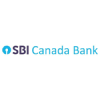Buying a home is one of the biggest decisions you’ll ever make. For most people, it also means getting a mortgage loan. But with so many lenders out there, it’s important to know who you’re borrowing from. One of the first choices you’ll face is whether to go with an A lender or a B lender. Understanding the difference between A lenders and B lenders can help you choose the right one for your situation.
Not everyone gets approved by the same type of lender. Some people have strong credit, steady jobs, and low debt. Others might have lower credit scores, be self-employed, or have more debt. That’s where B lenders come in. They offer options to people who don’t quite fit the usual mould but still want to own a home. This guide explains what A and B lenders are, how they work, and the best choice for your situation.
What Are A Lenders?
A lenders in Canada are traditional banks and credit unions. These include big names like TD, RBC, Scotiabank, and BMO. Although Alenders provide excellent interest rates, they maintain the most rigid conditions. Good credit, stable income, and a low debt-to-income ratio qualify you for an A-lender mortgage. These lenders want convincing evidence that you represent a low-risk candidate for loan repayment since it demonstrates your ability to meet payments on schedule.
Due to their close adherence to government mortgage regulations, A lenders ensure strict compliance with guidelines. The evaluative process of A lender includes thoroughly examining your income, credit history, debt level, and target property assessment. An A lender will grant you a mortgage featuring low interests and favorable conditions if your qualifications match their requirements. A lender will deny your application if you fail to meet their standards.
What Are B Lenders?
B lenders, also known as alternative lenders, are different. They still follow the rules, but they are more flexible. B lenders are willing to lend money to people who may not qualify with an A lender. This includes people with bad or limited credit, those who are self-employed, or those who have recently gone through financial troubles like bankruptcy.
Mortgage B lenders charge slightly higher interest rates than A lenders because they take on more risk. But they give people a second chance to become homeowners. Some of the best B lenders in Canada include Home Trust, Equitable Bank, and Haven tree Bank. These lenders understand that not everyone fits into the same financial box and are more open to unique situations.
How B Mortgage Lenders Help Different Buyers

Let’s say you’ve been freelancing or running your own business. You make enough money, but it may be hard to prove to a bank because your income is not from a regular job. An A lender might not accept that. But B mortgage lenders may approve your mortgage if you can show other proof, like tax returns, bank statements, or contracts.
If you’ve had credit problems in the past, like missing payments or using too much of your credit card limit, A lenders may see you as a risk. B lenders for mortgages look at the bigger picture. If you’re back on track financially and can afford a mortgage, they may be willing to lend you the money. This makes B lenders’ mortgage options a great fit for many Canadians.
The Pros and Cons of A Lenders vs B Lenders
Choosing between A lenders vs B lenders depends on your situation. A lenders usually offer lower interest rates, longer mortgage terms, and lower fees. This makes them the first choice for people who meet their strict rules. But if you don’t qualify, a B lender can still help you get your desired home.
With B lenders, you’ll pay a higher interest rate, and sometimes there are extra fees. But you’ll also get to own a home even if your finances aren’t perfect. Many people use B lenders as a temporary solution. After a year or two of on-time payments and financial improvements, they can often switch to an A lender for better rates.
Finding the Best Home Mortgage Lenders for You

No matter where you are on your home-buying journey, it’s smart to compare options. Look for the best home mortgage lenders based on your credit score, income, and financial goals. If you have strong credit and a stable income, start with A lenders. But if you’ve been turned down or know you might not qualify, check out top B lenders in Canada.
It also helps to work with a mortgage broker. Brokers know both A and B lenders and can guide you to the right choice. They can save you time and stress by helping you understand what each lender needs and which fits your profile. They’ll even help you collect documents and fill out applications.
Where to Find B Lenders in Toronto and Beyond
Many B lenders offer excellent services in Toronto. These lenders understand the local housing market and work with people from all walks of life. Whether you’re a new immigrant, a self-employed worker, or rebuilding after financial challenges, B lenders in Toronto can help you own a home.
In other parts of the country, the story is the same. You’ll find B lender mortgage options in every province, offering flexible mortgages to people who need them. Many B lenders work with brokers to serve different communities, even in smaller towns and rural areas.
What About Private or Second Mortgage Lenders?
Sometimes, people need even more help than B lenders offer. That’s where private mortgage lenders come into play. These lenders are not banks or credit unions. They are individuals or private companies that lend money, usually with shorter terms and higher interest rates. Private lenders provide 1st mortgages as well; in certain situations, they also can provide second mortgages. Second mortgage means borrowing money on top of your first mortgage.
People often use private mortgage lenders when they need to quickly close a purchase property transaction (sometimes as early as within 2-4 days), or to get quick cash access—for example, to renovate a home, pay off debt, or cover emergency expenses. These loans are higher risk, so they cost more. For some homeowners, however, they are a helpful tool when other lenders won’t help.
How to Choose Between A Lenders vs B Lenders

If you’re wondering which lender is right, look at your finances. Do you have good credit? Is your income steady and easy to prove? Do you have low debt? If yes, then an A lender might give you the best deal.
But if your situation is more complicated—maybe your credit isn’t perfect, or your income is hard to document—a B lender might be the better option. The most important thing is that you can afford the monthly payments and are ready to take on the responsibility of owning a home.
Even though B lenders charge higher mortgage rates, they allow you to buy a home and start building equity. With time, your credit and finances can improve, and you can refinance with an A lender later.
How to Improve Your Chances with Any Lender
Whether you choose an A lender or a B lender, there are steps you can take to make your application stronger. First, pay off as much debt as you can. High debt makes it harder to get a loan. Second, try to save a good down payment. The more money you can put down, the less risky you are to a lender.
Also, try to improve your credit score. Even a slight increase can help you get a better deal. Pay your bills on time, avoid using too much of your credit card limit, and check your credit report for errors. These simple actions can open doors to better mortgage options in the future.
The Role of Mortgage Brokers and How They Help
A mortgage broker can help make the decision easier when you’re stuck between A and B lenders. Brokers understand the difference between A lenders vs B lenders and can explain your options in simple terms. They work with many lenders and can help you find the best mortgage.
Many brokers know about the best B lenders in Canada and can match you with the right one. Whether you’re looking for B lenders in Toronto, Calgary, Vancouver, or smaller cities, a broker has access to national and local lenders. Their services are often free because the lender pays them once your mortgage is approved.
| Top Preferred Lenders List | |||
| A Lenders | B/Alternate Lenders | Private Lenders | Insurer |
 |
 |
 |
 |
 |
 |
 |
 |
 |
 |
 |
 |
 |
 |
 |
|
 |
 |
 |
|
 |
 |
 |
|
 |
 |
||
 |
 |
||
 |
|||
| Many other lenders that we can go to… |
Conclusion: Make the Right Mortgage Choice for You
Ultimately, choosing between A and B lenders comes down to your financial story. A lenders may offer you the best deal if you have strong credit and a steady income. But if you’re self-employed, rebuilding credit, or don’t meet bank rules, B lenders offer a great alternative.
Whether you’re looking for B lenders in Toronto or the best B lenders in Canada, or just wondering where to start, remember: there’s a mortgage solution for you. With the help of brokers and flexible loan mortgage lenders near you, you can find the right path to owning a home.
Don’t let one “No” stop you. The world of B lenders Mortgage Canada is full of opportunity. Do your research, talk to a broker, and take the next step with confidence. Owning a home might be closer than you think—all you need is the right lender to help you get there.
Still have questions? Let’s talk. At Bluewater Mortgage, we’re committed to helping you find the mortgage option that fits your unique financial situation. Whether you’re just starting your search or need help comparing lenders, our experienced team is here to guide you. Contact us today for a free consultation and take the first step towards confident, informed home ownership.


